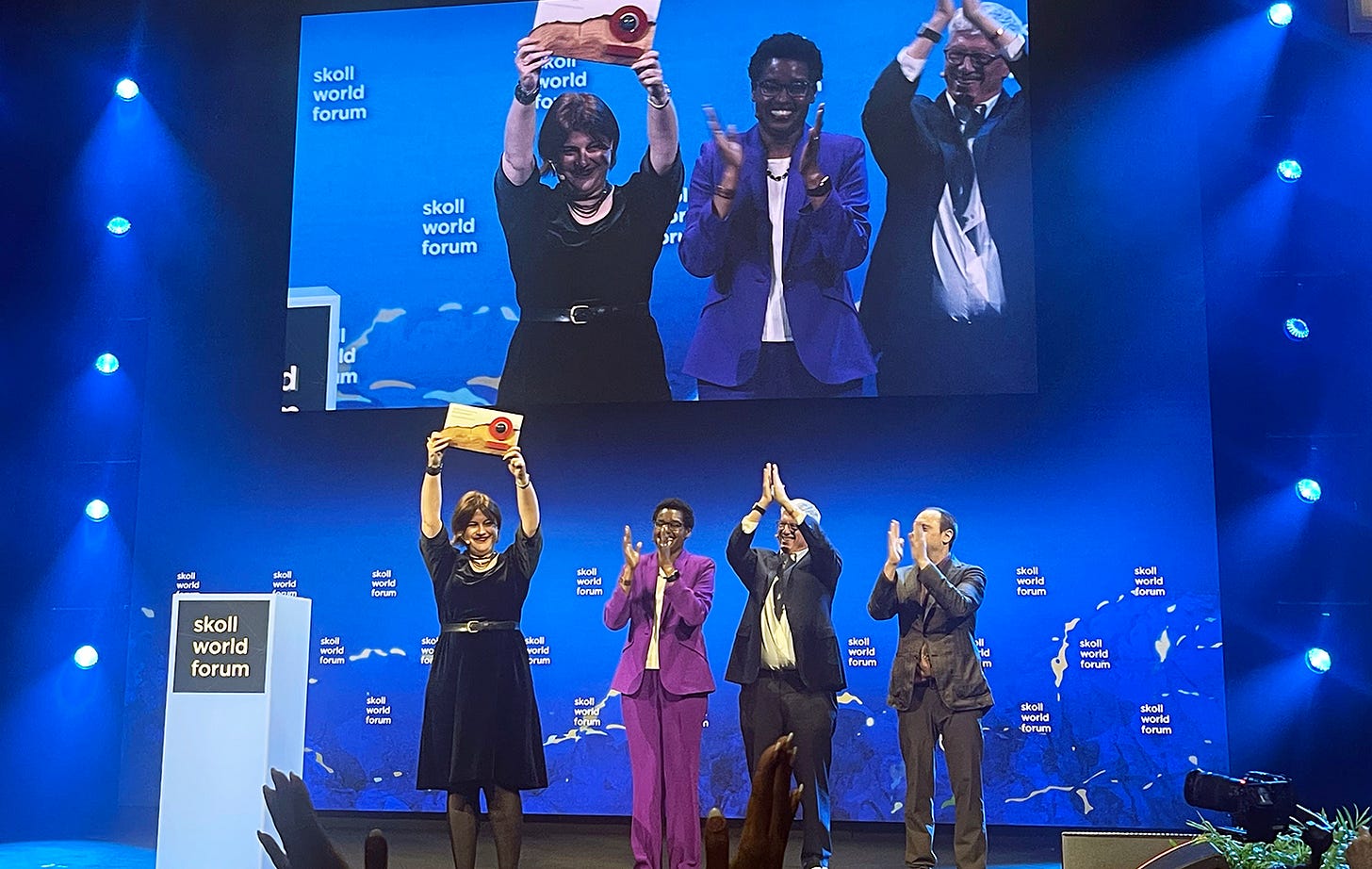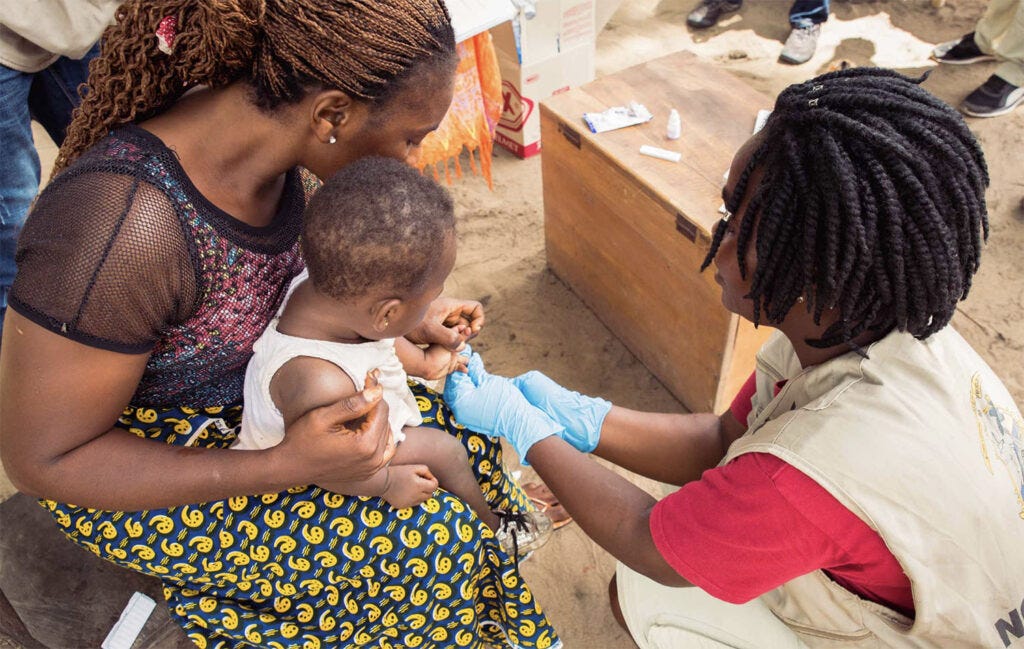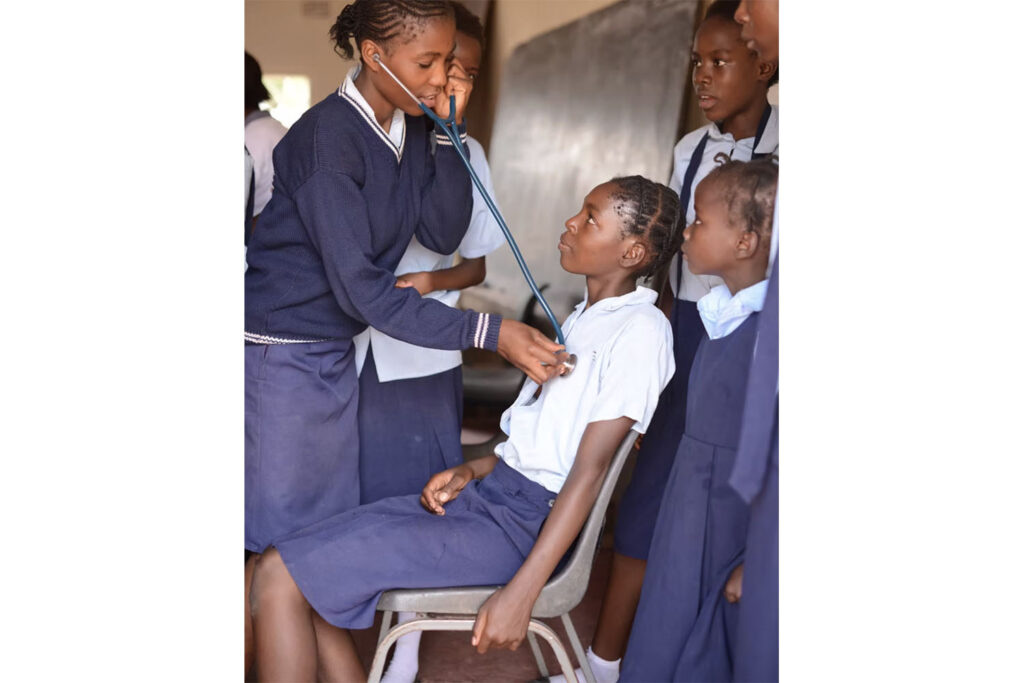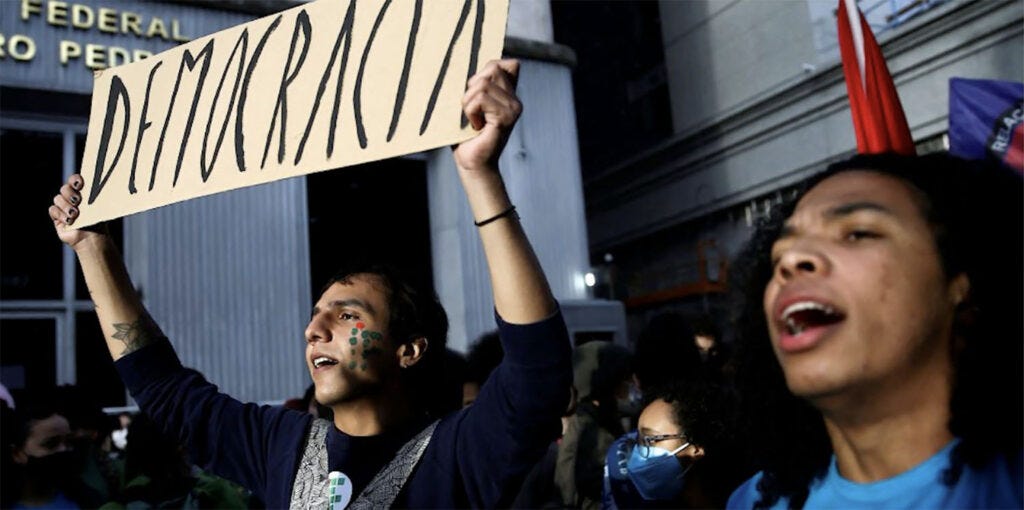Three More Skoll Awardees Giving Hope in a Dark World
Inspiration from the Alliance for Sustainability

By Alliance for Sustainability President Terry Gips
While we face a growing darkness for democracy and the rule of law in the US and around the globe, we are blessed to have heroes and sheroes (as Maya Angelou would say) working hard every day to create the world we want. They remind us we have the power to overcome by standing up and fighting for what’s right.
In Part 3 of our series, we share the other three winners of the Skoll Award for Social Innovation honored April 3 for “advancing transformational social change to create a more sustainable, peaceful and prosperous world for all.” As each got a standing ovation from the 1,500 of us delegates (especially the Brazilians!), the gift to us was to rise together and multiply their extraordinary entrepreneurial energy into a new wave of change.
Community Health Impact Coalition (CHIC): Advocating for Community Health Worker Pay

Challenge: “In Africa, there are millions of people who live out of the reach of health care. 1 out of 5 children will not reach the age of 5.” People are dying from treatable illnesses like malaria, pneumonia, and diarrhea. The traditional model is that families find their way to a doctor or a hospital for their healthcare needs. But millions of families live in hard-to-reach communities that may be hours — or days — from the nearest clinic.
“Despite indisputable evidence showing that community health workers (CHWs) dramatically improve health outcomes and save lives worldwide, millions remain unintegrated in the formal health care system. The result? Millions of CHWs – 70% of whom are women – are not salaried, skilled, supervised or supplied. Despite decades of global health investment, one billion people will never see a health worker.”
Solution: Skoll Awardees Dr. Madeleine Ballard and Margaret Odera help lead the Community Health Impact Coalition (CHIC), which started as a loose collaboration of six innovative implementers: Partners in Health, Living Goods, Last Mile Health, Muso, Possible and Integrate Health.
They demonstrated that salaried, skilled, supervised, and supplied community health workers (CHWs) dramatically reduced child mortality in an astonishingly short timeframe. They showed that radical collaboration could spread good design — driving results faster.
After two years of informal collaboration, they made CHIC official in 2019. It has grown into a global movement of thousands of CHWs and dozens of aligned global health organizations in 60+ countries across five WHO regions working to make “professional” the norm in community health — advocating with governments to ensure CHWs are salaried, skilled, supervised and supplied to deliver quality care.
“As a nonprofit system orchestrator, the coalition is focused on achieving systems change rather than scaling up or acknowledging an individual organization. Members of the coalition share their intellectual property, make it public, and learn from each other — leading to greater influence and faster scale.
“The Coalition uses targeted research to inform norm-setters and policymakers, advocacy to influence global financing institutions and activation of in-country CHW networks to win national policy.” See Skoll’s video
Hope: Since its 2019 founding, this audacious 60+ country movement:
Helped enact landmark 2018 WHO guidelines that include 7 of 8 pro-CHW best practices which shape CHW-supportive policies in 194 countries
Secured landmark policy changes at three of the largest and most important global health financing institutions: the Global Fund, PEPFAR, and PMI
Trained more than 12,000 CHWs who’ve completed CHIC’s advocacy course and are creating affinity groups to influence policy debates at national and international levels
Successfully advocated for accrediting and providing CHW salaries in nearly 40 countries
Healthy Learners: Making Healthcare Accessible to Children in Their Schools
Challenge: “Historically, global health interventions have focused on the health of children under five, almost always ignoring the needs of millions of school-aged children. These children remain highly exposed to preventable and treatable illnesses during a period of life that is critical for learning and development.”
Solution: Skoll Awardees Lonnie Hackett and Ignicious Bulongo co-founded Healthy Learners, which trains teachers as school health workers, using existing infrastructure to bring a scalable system of health care screening to children in schools.
The organization partners with the government of Zambia to train five to ten teachers per school as school health workers who monitor student health, perform basic first aid, provide preventative care and refer severe cases to a clinic. Their innovative model improves health and academic outcomes for nearly one million children. See Skoll’s video
Hope: After spending the last five years developing and refining a successful model, Healthy Learners is working with the Zambian Ministries of Health and Education to scale the model throughout the country.
It works with 600 schools and serves more than 967,000 children across eight of Zambia’s ten provinces
By 2028 it aims to reach 2.5 million children – 70% of the primary school population – with this innovative approach to overcoming the massive health care gap in Africa
An early study of the Healthy Learners program showed a 38% reduction in student morbidity, a 52% reduction in the odds of growth stunting and a 22% increase in health knowledge
The model has an annual ongoing cost of $1.46 per child, which is less than 1% of Zambia’s expenditure on education for primary school children
They’ve seen a significant decrease in endemic infections, exemplified by a 60% reduction in the rate of schistosomiasis in the Ng’ombe Township
Nearly all of their partner schools have reported a decrease in absenteeism
Qualitative interviews have shown that the School Health Workers enjoy increased social status and express a sense of empowerment that extends to all aspects of their roles as educators
Pacto pela Democracia (Pact for Democracy): Brazil’s Leading Pro-Democracy Group
Challenge: “Democracy is facing global threats from coordinated groups aiming to undermine the rule of law and seize power. Without a unified effort to build trust in democracy and protect peaceful societies, many countries risk authoritarian takeovers.
In Brazil, the 40-year-old democracy is threatened by growing polarization and campaigns that erode trust in democratic institutions.”
Solution: Skoll Awardee Flávia Pellegrino heads Pacto pela Democracia, Brazil’s leading pro-democracy movement. The organization facilitates a diverse coalition to counter autocratic forces, strengthen democratic institutions, and foster a more peaceful and resilient society.
“Made up of over 200 civil society partners, the coalition brings together players that work with multiple agendas and have different political identities, building a nonpartisan space to produce knowledge, create strategies and coordinate efforts to enhance the democratic environment in the country.
“Through information-sharing, strategic partnerships, and collective action, the coalition defends the rule of law, protects election processes and results, and serves as a global model for countering authoritarian threats and maintaining peace and stability in democratic nations.” See Skoll’s video
Hope: The Pacto coalition has:
Successfully protected the process, infrastructure and results of the 2022 Brazilian election, deploying 80+ discrete, collaborative actions using an opt-in strategy among their network partners
Organized a “situation room” in 2022 before, during and after the election consisting of 120+ individuals from 35 organizations organized into 15 different working groups mapped to specific threats, sharing intelligence, aligning strategies and mobilizing
Played a fundamental role in advocating for legislation aimed at defending the rule of law in Brazil, which has been key for the country to deal with recent undemocratic attacks and coup d’état attempts
Created and disseminated handbooks with learnings from collective action to protect democracy, serving as a model for coalitions in other countries to adapt and deploy
I hope these three groups and their leaders give you hope and inspire you to Take Action.




